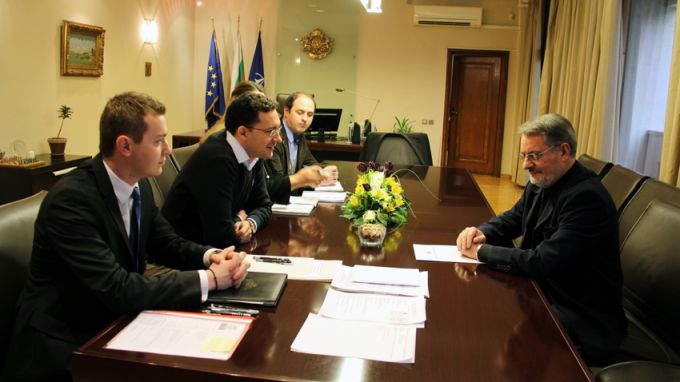
The first days of 2015 gave reason to expect some kind of progress to be made in Bulgarian-Macedonian relations. Prime Minister Boyko Borissov was interpellated in parliament on this country’s policy with regard to our neighbour. There followed a meeting between Foreign Minister Daniel Mitov and Macedonia’s ambassador to this country Blagoj Handjiyski. It has become apparent that Bulgaria’s position on Macedonia’s European prospects has remained unaltered since the time of the first Borissov cabinet.
Just as during the first Borissov government, the current, second cabinet of Prime Minister Boyko Borissov is emphatic in its support for Macedonia’s European and Euro-Atlantic integration and is prepared to render it expert assistance on specific issues connected with the experience Bulgaria has accumulated on its way to membership of the EU and NATO. But this support is not unconditional and is contingent on the signing of an agreement on good neighbourhood and cooperation, based on the declaration of good neighbourhood signed by the prime ministers of the two countries in 1999. Essentially, by force of this agreement Bulgaria wants to lend legal value to the declaration, without any additional demands on Macedonia. But Skopje has its reservations.
Bulgaria also wants historical events, dates and figures that are shared by the two countries to be marked jointly - such as for example a joint celebration of Sts. Cyril and Methodius in Rome.
As yet, Macedonia has not given a clear answer. Expert groups have been set up at a foreign ministry level for consulting the good neighbourhood agreement, yet political instability in both countries in recent years has proved to be an obstacle to their work. Last week’s meeting between Foreign Minister Daniel Mitov and the ambassador of Macedonia raised hopes of a positive development, including expectations of a meeting between the foreign ministers of the two countries that would push the political dialogue up to a higher level. On this dialogue hang the European and Euro-Atlantic prospects of Macedonia, but also progress on a number of important bilateral and regional projects such as putting up new border check points, building railway connections between the two countries, a Pan-European corridor between the Bulgarian Black Sea coast and the Albanian port of Vlorë via Macedonian territory. The stakes are high but as yet progress is negligible and, regrettably, bilateral relations continue problematic.
English version: Milena Daynova
Nearly five months after the last early parliamentary elections in Bulgaria, the 51st National Assembly has "grown" by one party and is now formed by nine political formations. The Constitutional Court declared the election of 16 MPs illegal , and..
Georgi Kuzmov, who was removed from his position as mayor of the Sofia district of Oborishte, is returning to his post after winning the new elections with nearly 70% of the votes. At the end of last year, the Supreme Administrative Court..
Velichie party enters the 51 st National Assembly with 10 seats, the Central Election Commission (CEC) has decided following the ruling by the Constitutional Court which alters the results of the election for National Assembly held on 27 October,..

+359 2 9336 661
